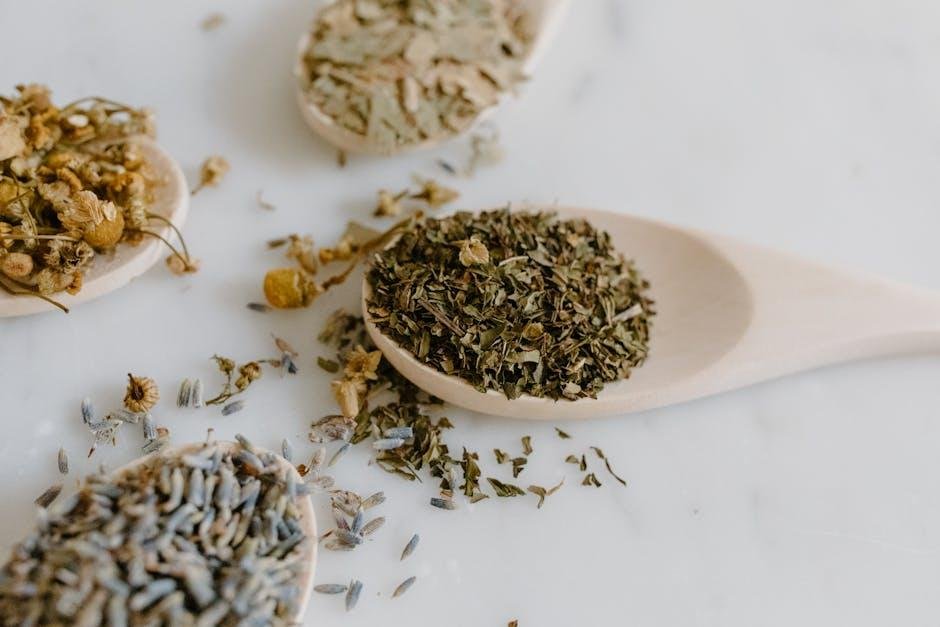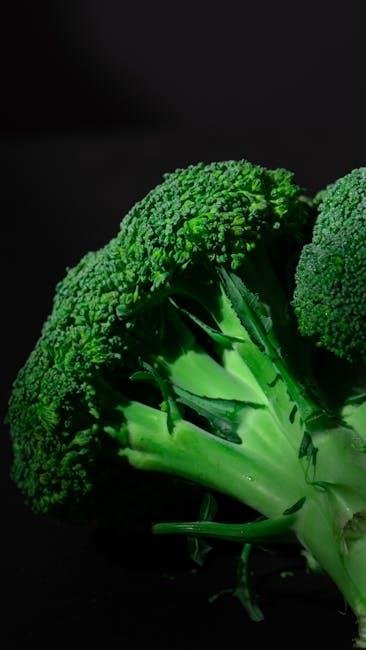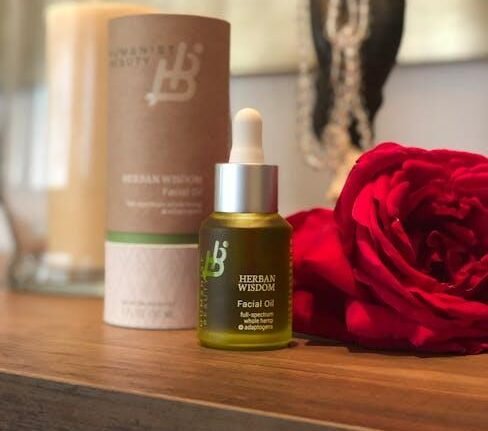In the quest for timeless vitality, nature and science converge in remarkable ways. Functional ingredients—those bioactive compounds nestled within everyday foods and natural extracts—are emerging as powerful allies in the fight against aging. Beyond mere nutrition, these celebrated elements offer a suite of benefits that go beyond skin deep, targeting cellular health, reducing oxidative stress, and promoting overall well-being. As we explore the anti-aging benefits of functional ingredients, we uncover how these natural treasures can support not just longer life, but a life lived with youthful vigor and resilience.
Table of Contents
- Understanding Functional Ingredients and Their Role in Aging Gracefully
- Key Antioxidants That Combat Cellular Damage and Promote Youthful Skin
- The Science Behind Collagen Boosters and Skin Elasticity Enhancement
- Natural Anti-Inflammatory Compounds for Reducing Age-Related Inflammation
- Harnessing Vitamins and Minerals to Support Cognitive and Physical Vitality
- Incorporating Functional Ingredients into Your Daily Routine for Lasting Benefits
- Q&A
- To Wrap It Up

Understanding Functional Ingredients and Their Role in Aging Gracefully
Functional ingredients form the foundation of modern skincare and wellness, working synergistically to support the body’s natural ability to maintain youthfulness. These bioactive compounds, often derived from plants, marine sources, or scientifically synthesized, offer targeted benefits that go beyond basic nutrition. Their role is to enhance cellular function, protect against oxidative stress, and promote collagen synthesis, which is essential for maintaining skin elasticity and reducing the visible signs of aging. Incorporating such ingredients into your daily regimen can significantly slow down the aging process, improving skin texture and resilience with consistent use.
By harnessing the power of antioxidants, peptides, and adaptogens, functional ingredients deliver potent anti-aging effects that are both preventive and restorative. Here are some key examples:
- Antioxidants: Neutralize free radicals to minimize oxidative damage.
- Peptides: Stimulate collagen production and repair skin cells.
- Adaptogens: Help the body adapt to stress, promoting overall skin health.
| Ingredient | Primary Benefit | Source |
|---|---|---|
| Vitamin C | Brightens & boosts collagen | Citrus fruits |
| Hyaluronic Acid | Hydrates & plumps skin | Natural skin moisture |
| Coenzyme Q10 | Protects from oxidative stress | Found in cells |

Key Antioxidants That Combat Cellular Damage and Promote Youthful Skin
At the heart of maintaining radiant, youthful skin lie powerful antioxidants that shield our cells from the relentless assault of free radicals. Ingredients such as Vitamin C, Vitamin E, and Coenzyme Q10 create a protective barrier that neutralizes oxidative stress, preventing cellular breakdown and promoting skin regeneration. These antioxidants not only enhance collagen synthesis but also brighten the skin, reducing the appearance of fine lines and age spots for a smooth, luminous complexion.
In addition to these well-known warriors, natural polyphenols from green tea and resveratrol from grapes offer remarkable anti-inflammatory and DNA-repairing properties. Their ability to calm irritated skin and enhance cellular communication amplifies the skin’s resilience against environmental damage. Below is a quick glance highlighting some key antioxidants and their distinct benefits:
| Antioxidant | Primary Function | Benefits |
|---|---|---|
| Vitamin C | Collagen booster | Brightens skin, reduces wrinkles |
| Vitamin E | Skin protector | Moisturizes, fights UV damage |
| Coenzyme Q10 | Cell energy producer | Improves skin texture, reduces lines |
| Green Tea Polyphenols | Anti-inflammatory | Calms skin, enhances repair |
| Resveratrol | DNA protector | Strengthens skin’s barrier |

The Science Behind Collagen Boosters and Skin Elasticity Enhancement
Collagen, the most abundant protein in the skin, acts as a fundamental building block that maintains its structure and resilience. Over time, natural collagen production diminishes, leading to sagging and wrinkles. Functional ingredients such as peptides, vitamin C, and hyaluronic acid are scientifically proven to stimulate collagen synthesis by activating fibroblast cells. These ingredients not only promote the formation of new collagen fibers but also enhance the skin’s ability to retain moisture, crucial for preserving elasticity. By supporting collagen turnover, they restore the skin’s firmness and suppleness, effectively counteracting the visible signs of aging.
Key mechanisms behind collagen boosters include:
- Triggering gene expression related to collagen protein synthesis
- Protecting existing collagen from enzymatic degradation
- Increasing antioxidant defense to combat free radical damage
- Enhancing water retention to improve skin plumpness
| Ingredient | Primary Action | Effect on Skin Elasticity |
|---|---|---|
| Peptides | Stimulate fibroblast activity | Increase collagen fiber production |
| Vitamin C | Acts as a cofactor for collagen synthesis enzymes | Enhances firmness and reduces wrinkles |
| Hyaluronic Acid | Hydrates and maintains extracellular matrix | Improves skin elasticity and moisture levels |

Natural Anti-Inflammatory Compounds for Reducing Age-Related Inflammation
Chronic inflammation is a silent contributor to many age-related health issues, making the discovery and use of natural anti-inflammatory compounds critical for healthy aging. These compounds, often found in everyday foods and herbs, help modulate the body’s inflammatory response, reducing oxidative stress and cellular damage. Curcumin from turmeric, for instance, is celebrated for its potent anti-inflammatory and antioxidant properties, making it a staple in anti-aging regimens. Similarly, omega-3 fatty acids found in fish oil not only lower systemic inflammation but also support brain health and cardiovascular function, which tend to decline with age.
Incorporating these powerful compounds into daily nutrition is simple yet effective. Below is a list of natural anti-inflammatory agents known for their age-defying benefits:
- Resveratrol – Found in grapes and berries, boosts cellular repair mechanisms.
- Ginger – Known to reduce inflammation and improve digestion.
- Green tea polyphenols – Protect cells from oxidative damage and support metabolic health.
- Quercetin – A flavonoid in onions and apples that inhibits inflammatory enzymes.
| Compound | Primary Source | Key Benefits |
|---|---|---|
| Curcumin | Turmeric | Anti-inflammatory, antioxidant |
| Omega-3 Fatty Acids | Fatty Fish (Salmon, Mackerel) | Heart & brain support, inflammation reduction |
| Resveratrol | Grapes, Berries | Cellular repair, longevity |
| Green Tea Polyphenols | Green Tea | Oxidative protection, metabolism support |

Harnessing Vitamins and Minerals to Support Cognitive and Physical Vitality
Optimal cognitive and physical vitality is intricately linked to the balanced intake of essential vitamins and minerals, which serve as the biochemical building blocks for cellular health and neurological function. For instance, Vitamin B-complex plays a pivotal role in energy production and neurotransmitter synthesis, bolstering memory retention and mental clarity. Similarly, magnesium helps regulate muscle function and neural activity, preventing fatigue and enhancing overall endurance. Embracing a regimen rich in these micronutrients supports mechanisms like antioxidation and inflammation reduction, providing a natural shield against the wear of time on both mind and body.
Incorporating these vital nutrients can be approached through a variety of whole foods and supplements, which synergistically amplify their benefits for anti-aging effects. Consider the following key contributors to cognitive and physical performance:
- Vitamin D – promotes mood balance and bone strength
- Iron – essential for oxygen transport and cellular metabolism
- Zinc – critical in DNA repair and immune resilience
- Omega-3 fatty acids (not a vitamin or mineral but essential) – support brain plasticity and reduce systemic inflammation
| Ingredient | Main Cognitive Benefit | Main Physical Benefit |
|---|---|---|
| Vitamin B12 | Enhances memory and focus | Supports red blood cell formation |
| Magnesium | Regulates synaptic transmission | Relaxes muscles & reduces cramps |
| Zinc | Protects neural pathways | Boosts immune defense |

Incorporating Functional Ingredients into Your Daily Routine for Lasting Benefits
Integrating functional ingredients into your daily life doesn’t have to be complicated. Start small by choosing products that naturally blend into your routine—whether it’s a morning smoothie packed with antioxidants or a nighttime serum rich in peptides. Consistency is key; the cumulative effect of these ingredients supports skin resilience, improves elasticity, and combats oxidative stress. Consider keeping a well-stocked arsenal of adaptogens, vitamins, and bioactive compounds readily available to nourish your body both inside and out.
To simplify your approach, here’s a quick guide on where to find some of the most potent functional ingredients and how they can seamlessly fit into everyday habits:
- Vitamin C: Morning toner or fresh citrus in breakfast
- Collagen peptides: Stir into coffee or smoothies
- Omega-3 fatty acids: Incorporate flaxseeds or fish oil capsules
- Curcumin: Add turmeric to meals or teas
- Niacinamide: Nighttime skincare products
| Ingredient | Best Time to Use | Primary Benefit |
|---|---|---|
| Vitamin C | Morning | Brightens & protects skin |
| Collagen Peptides | Anytime | Boosts skin elasticity |
| Omega-3 Fatty Acids | With meals | Reduces inflammation |
| Curcumin | Evening | Supports cellular repair |
| Niacinamide | Night | Improves skin barrier |
Q&A
Q&A: Unlocking the
Q1: What exactly are functional ingredients?
A1: Functional ingredients are bioactive compounds naturally found in foods and plants that provide health benefits beyond basic nutrition. They can help support bodily functions, promote wellness, and combat age-related changes at the cellular level.
Q2: How do functional ingredients contribute to anti-aging?
A2: These ingredients often possess antioxidant, anti-inflammatory, and regenerative properties. By neutralizing free radicals, reducing inflammation, and fostering skin repair, they help slow down visible signs of aging such as wrinkles, loss of elasticity, and dullness.
Q3: Can you give examples of popular functional ingredients known for anti-aging effects?
A3: Sure! Some well-known examples include:
- Collagen peptides: Support skin structure and reduce sagging.
- Coenzyme Q10: A powerful antioxidant that boosts cell energy and combats oxidative stress.
- Vitamin C: Promotes collagen synthesis and brightens skin tone.
- Curcumin: The active ingredient in turmeric, it has strong anti-inflammatory and antioxidant properties.
- Polyphenols: Found in green tea and berries, they protect skin from environmental damage.
Q4: Are these ingredients more effective when consumed or applied topically?
A4: Both methods have benefits. Oral intake delivers systemic effects, nourishing the skin from within, while topical application targets specific skin layers directly. Combining both approaches often yields the best anti-aging results.
Q5: Is there scientific evidence supporting these claims?
A5: Yes, numerous studies have demonstrated the efficacy of functional ingredients in improving skin health and slowing aging processes. However, results can vary based on formulation, dosage, and individual bioavailability.
Q6: Can functional ingredients replace traditional anti-aging treatments?
A6: Functional ingredients complement but don’t completely replace conventional treatments like retinoids or professional dermatological procedures. They work best as part of a holistic approach including healthy lifestyle choices, skincare routines, and medical advice.
Q7: How can consumers safely incorporate functional ingredients into their anti-aging regimen?
A7: It’s wise to start with moderate doses, choose products from reputable brands, and consult healthcare professionals if you have specific health conditions. Personalizing your regimen ensures safety and maximizes benefits.
Q8: What future developments can we expect in the field of functional ingredients and anti-aging?
A8: Advances in biotechnology and personalized nutrition are paving the way for more targeted, potent, and safer functional compounds. Innovations like nanoscale delivery systems and gene expression modulation hold exciting promise for next-generation anti-aging strategies.
To Wrap It Up
As science continues to unravel the intricate dance between nature and our biology, functional ingredients stand out as promising allies in the quest to age gracefully. While the passage of time is inevitable, the choices we make—infused with the power of these remarkable compounds—can shape how we experience it. Embracing these functional ingredients not only nourishes our bodies but also invites a thoughtful approach to aging, where vitality and resilience take center stage. In the end, the beauty of aging may lie less in defying time and more in empowering ourselves with the wisdom nature provides.















Leave feedback about this